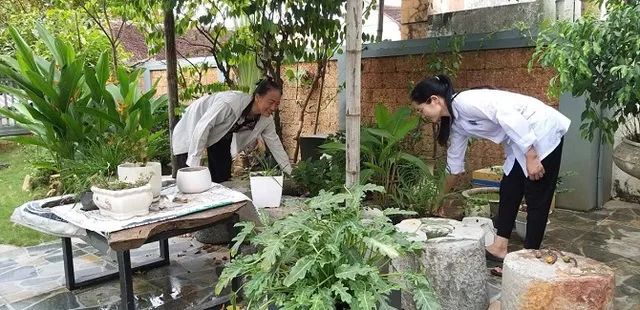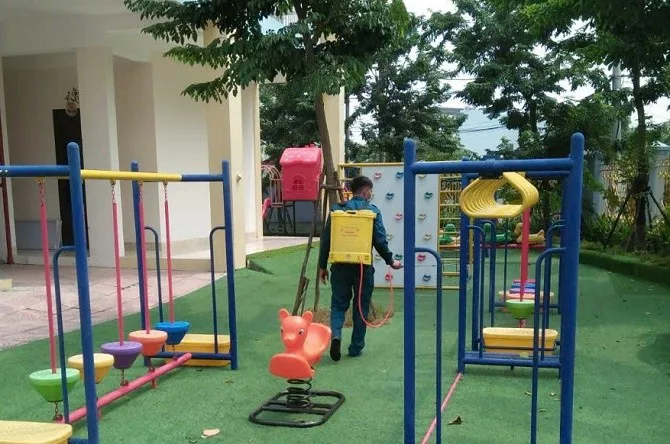Hanoi works on cleanup, disease prevention after Typhoon Yagi
The city's medical units advice the community on the use of clean water, food safety, and environmental hygiene.
Health workers in Hanoi struggle to treat storm-related injuries and clean up heavily flooded areas, according to the Hanoi Department of Health.
The department has instructed medical units to step up epidemic prevention and control measures and environmental sanitation so that people's lives can return to normal as soon as possible.
Animal carcasses that can cause infectious diseases are removed and chemicals are sprayed to kill disease-carrying insects in at-risk areas.
After Typhoon Yagi, health workers from Ung Hoa District help people clean up their surroundings. Photos: Hanoi Department of Health |
Medical units advise communities on food safety, clean water and environmental sanitation to prevent epidemics and flooding, which often occurs after the rainy season. Public hospitals and the private healthcare system have been asked to be ready to help rescue patients and provide support throughout the city.
Hanoi's medical centers have provided 5,450 kilograms of chlorine B, 620 kilograms of lime powder, and 30.4 kilograms of alum for water and environmental treatment.
As of September 18, there were still more than 200 flooded areas in the city. In total, some 39,000 houses have been submerged, and 13,540 are still underwater. Of these, nearly 24,000 households have received environmental sanitation treatment.
Flooded medical stations have been relocated to temporary locations to ensure the safety of human resources, equipment, and medicines to keep carrying out medical examinations and treatment, as well as health care for local people.
The prolonged inundation has resulted in 508 cases of skin diseases, 42 cases of digestive diseases, 117 cases of eye diseases and one case of dengue fever. Health workers have distributed intestinal antibiotics, topical medicines, digestive enzymes and eye drops to people in flooded areas.
Spraying disinfectant at Vinh Quynh Kindergarten in Hanoi's Thanh Tri District, Hanoi. |
A large number of family medical kits have also been provided to households affected by the floods by the Hanoi Department of Health.
A kit contains painkillers, fever reducers, probiotics, anti-diarrhoeal medicines, skin antiseptics, rehydration solutions, medicines for allergic rhinitis, hives, itching, nasal congestion and runny nose, and personal care items, and other essential medicines.
Health professionals are warning people of the possibility of an increased risk of epidemic outbreaks during and after floods, particularly for diseases of the skin, respiratory system, eyes, digestive tract, hands, feet and mouth.
Typhoon Yagi and subsequent floods and landslides in northern provinces and cities caused economic losses of about VND40 trillion (US$1.6 billion) as estimated by the Ministry of Planning and Investment.












